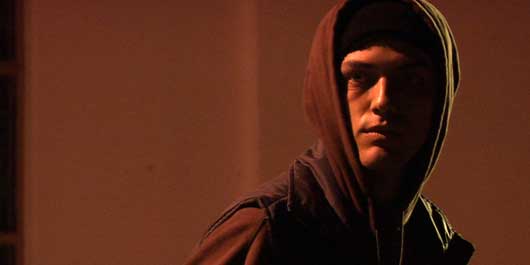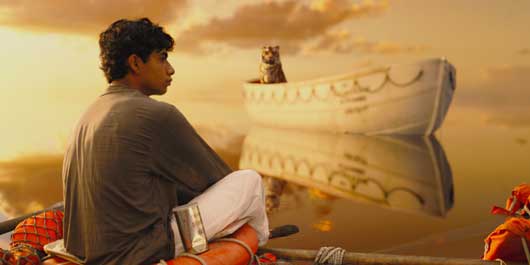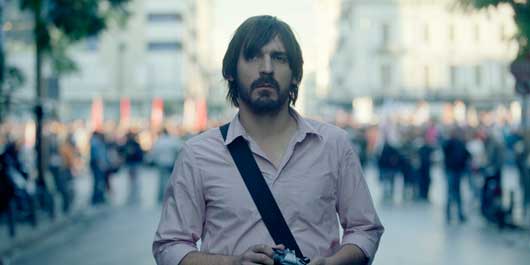
Ah Quentin Tarantino the writer who uses 10 words where one will do, the director who makes a simple scene last 10 minutes longer than necessary, and the actor who well, who can’t act.
After dazzling the film world with his early work he has recently been outed as a windbag, and this baggy homage to the western has all of the weaknesses and strengths than fans already know. It’s unlikely to win him new fans, but is entertaining enough to keep the faithful happy enough. It takes its sweet time to go anywhere though.
And while the film has all sorts of references to other westerns, the one that kept springing to mind wasn’t True Grit, Pale Rider or High Plains Drifter but Butch Cassidy And The Sundance Kid, and that almost certainly wasn’t Tarantino’s intention.
After some superbly designed credits that pay homage to the spaghetti western, the film splits into three roughly equal parts. It tells the story of Django (Foxx), a black slave in the Deep Douth set just before the Civil War started. He is rescued and freed by bounty hunter Dr Schultz (Waltz), and the two strike a deal. Django will lead Schultz to a notorious gang so the Doctor can claim the bounty, Schultz will help Django find his wife, who has been captured and held on a plantation known as Candieland’, run by the dangerous Calvin Candie (DiCaprio).
Here the film turns into as classic western, as the two unlikely men ride into towns, blast the bad guys and charm the townsfolk. Schultz teaches Django how to read and do maths, Django refines his gun and rifle skills. They are an entertaining and charismatic double act, but Tarantino loves a long script, and a lot of the possible tension is lost with too many windbag exchanges between the two of them. If Waltz and Fassbender’s verbal sparring in Inglourious Basterds stretched patience this almost snaps it.
There is a clear True Grit homage when a gang of racists ride out to surprise our heroes, only for them to turn the tables with an explosive trap. This has a perfect example of what splits Tarantino’s audience fans would say only he can write a scene in which murderous racists argue about the holes in their hoods and make it funny, detractors will question the borders of taste on which the scene is played out.
Helped by Robert Richardson’s stunning Oscar-nominated cinematography it all bounds along in a jolly enough manner, until we get to the second act, the big showdown in Candieland’. It might take an age to get there but finally we get some real drama, and it’s not often that Leo DiCaprio has been so threatening.
He plays pretty well the possibly psychotic Calvin Candie, a white plantation owner whose hobbies include pretending to be French, kissing his sister and watching slaves wrestle each other to death. Django and Schultz pose as a couple of wrestling experts who may want to buy Candie’s leading muscleman, but of course they are really there to rescue Django’s wife. Candie’s right-hand man, Stephen, played by an almost unrecognisable Samuel L Jackson, smells a rat, and when he exposes the plot, well, safe to say blood is spilled.
Tarantino fans will know what to expect, and they get all of it here. There are great visual vistas, cool clothes, especially worn by Django, lots of hip use of music, some fine acting from cult names, and an awful, awful lot of script. Tarantino has defended his use of violence in the movie and he’s actually right for once it’s ridiculous to have a go at a genre western like this. The violence is bloody, stretched out and stylised but it’s completely cartoon-like and at times daft. Django never misses with his rifle even at 500 yards away, and never gets hit even when the bullets are flying everywhere.
There’s also the classic revenge aspect of Tarantino’s film credit to him for tackling the thorny issue of slavery full on. His bad characters recognisable from their inability to speak English and to spit in pints are very bad, his saints ride free, and there’s not much grey area in the middle. It’s entertaining enough but anyone taking it as a serious look at this crucial period in American history is going to be disappointed.
Waltz fully deserves his Oscar nod,and Golden Globe win,for his always witty, always interesting performance, and the film feels a little unbalanced when he is not on screen. Foxx is solid enough, DiCaprio surprising as the film’s bad guy, and there are other tiny cameos that are always well judged.
One footnote worth mentioning Tarantino’s editor died in 2010 and this is his first film since losing her. Replacement Fred Raskin hasn’t done much better in getting Tarantino to cut the flannel, sadly. Django Unchained resembles three one-hour episodes of a rambling TV drama rather than a cogent film, and that’s a shame, because there is plenty in it to enjoy and not just for Tarantino fans. Raskin or someone, anyone should also have a word with Tarantino about his acting’ here he plays a slave trader in one of the worst screen performances for many a long year. Why does he bother casting the original Django, Franco Nero, in a witty cameo and spoil it by casting himself in quite a long scene?
Overall verdict: Handsome, entertaining but rambling updating of the Western which has some fine moments and an awful lot of waffle to get through. Genre fans will probably love it, the unconvinced will remain so.
Reviewer: Mike Martin





You must be logged in to post a comment.